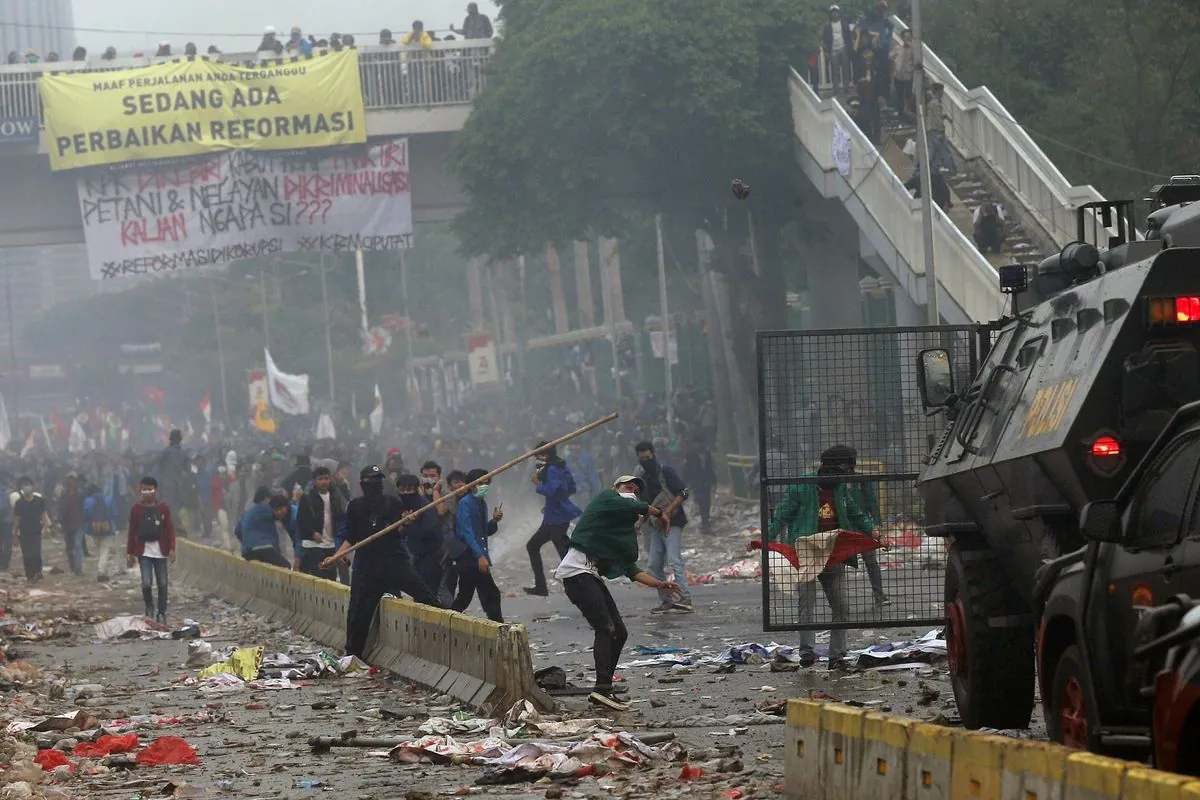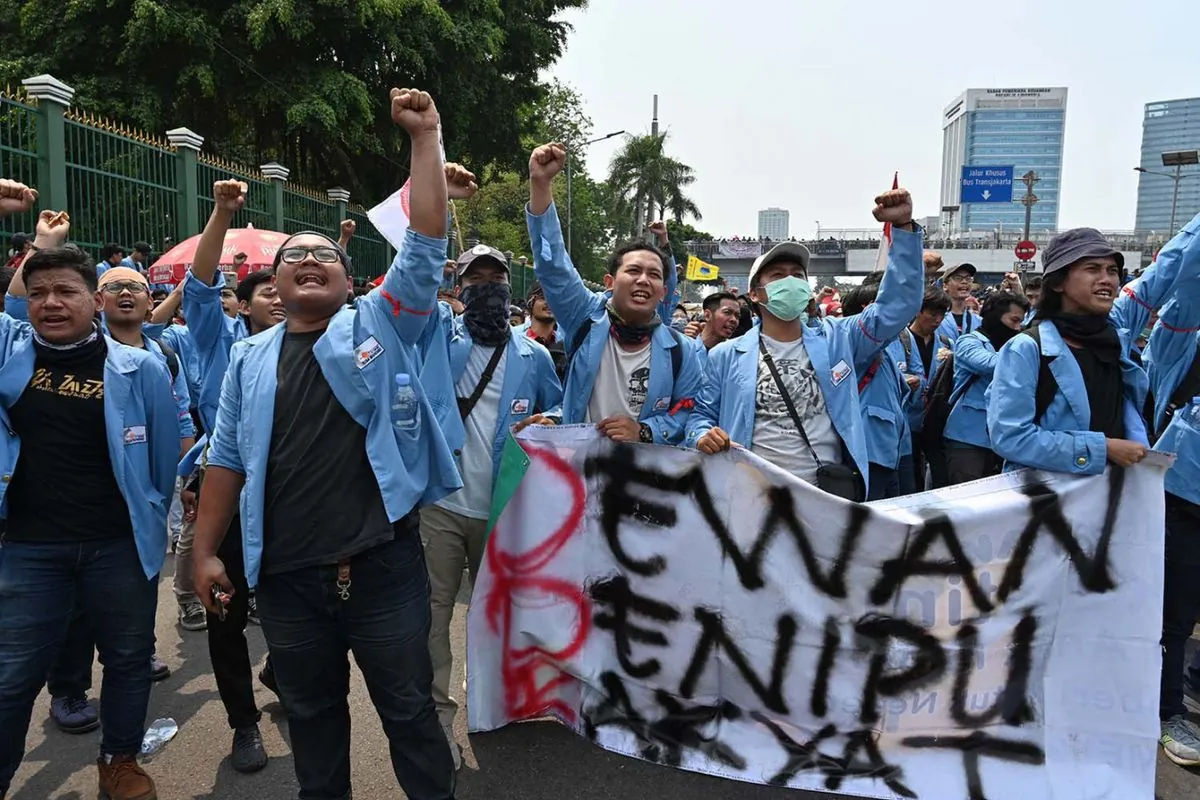Mass Protests Erupt in Indonesia Over Controversial Election Law Changes
Thousands in Indonesia protest proposed election law amendments, delaying parliamentary vote. Concerns rise over potential constitutional crisis and dynastic politics in the world's third-largest democracy.

One week ago, Indonesia, the world's largest archipelagic state with over 17,000 islands, witnessed widespread protests against proposed changes to its election laws. Thousands of demonstrators attempted to breach the parliament building in Jakarta, the capital and one of the world's most populous urban areas.
The unrest stems from concerns that the proposed amendments could bolster the political influence of outgoing President Joko Widodo. Protesters tore down fencing and hurled stones at law enforcement, forcing a delay in the parliamentary vote on these contentious changes.
The Constitutional Court, established in 2003, recently dismissed a challenge to age restrictions for regional governorship candidates. This decision prevents Kaesang Pangarep, the 29-year-old son of President Widodo, from running in Central Java. However, parliament swiftly passed an emergency motion to modify the minimum age requirement for governors to 30 at the time of inauguration.

These developments have sparked fears of a potential constitutional crisis in Indonesia, the world's third-largest democracy and fourth most populous nation with over 270 million inhabitants. The situation is further complicated by the fact that Widodo's eldest son, Gibran Rakabuming Raka, is set to become vice-president following a controversial court decision that created an age exception for former regional leaders.
The protests, which spread to other major cities including Bandung, Yogyakarta, Surabaya, and Makassar, reflect growing concerns about the state of democracy in Indonesia. The country, which gained independence from the Netherlands in 1945, has held direct presidential elections since 2004 and prides itself on its national motto "Bhinneka Tunggal Ika" (Unity in Diversity).
"They also opposed the dynastic politics carried out by President Jokowi."
Indonesia's diverse population, comprising over 300 ethnic groups and 700 languages, has united in voicing their opposition to what many perceive as attempts to establish political dynasties. The protests have drawn participants from various sectors of society, including activists, students, workers, and even celebrities.
As the largest economy in Southeast Asia and the world's largest Muslim-majority country, Indonesia's political stability is crucial not only for its citizens but also for the region. The ongoing situation highlights the delicate balance between political ambition and democratic principles in a nation that spans three time zones and boasts the world's second-longest coastline after Canada.
The People's Representative Council, Indonesia's 575-member parliament, now faces the challenge of addressing public concerns while navigating the complex political landscape. As the country continues to grapple with these issues, the world watches closely to see how this vibrant democracy, situated along the volatile "Ring of Fire," will resolve its current political tremors.


































